 W
WPeter Altenberg was a writer and poet from Vienna, Austria. He was key to the genesis of early modernism in the city.
 W
WLeopold Andrian, actually Leopold Freiherr Ferdinand von Andrian zu Werburg was an Austrian author, dramatist and diplomat.
 W
WHans Carl Artmann, also known as Ib Hansen, was an Austrian-born poet and writer, most popular for his early poems written in Viennese, which however, never after were to be the focus of his oeuvre.
 W
WRudolf Hans Bartsch (born 11 February 1873 in Graz, Styria – died 7 February 1952 in St. Peter in Graz), was an Austrian military officer, and writer. He was nominated for the Nobel Prize in Literature six times.
 W
WKonrad Bayer was an Austrian writer and poet. A member of the Wiener Gruppe, he combined apparently irreconcilable elements—violence, hermeticism, pessimism, ecstasy, banality—and influences —into a bizarre linguistic solipsism which has held increasing fascination for German writers of the last few decades. His most important works are the novels Der Kopf des Vitus Bering and Der sechste Sinn, published posthumously in 1965 and 1966, respectively. Bayer committed suicide in October 1964 at the age of 32.
 W
WNicolaas Thomas Bernhard was an Austrian novelist, playwright and poet. Bernhard's body of work has been called "the most significant literary achievement since World War II." He is widely considered to be one of the most important German-speaking authors of the postwar era.
 W
WLeo Birinski was a playwright, screenwriter and director. He worked in Austria-Hungary, Germany and in the United States. As a playwright in Europe he gained his biggest popularity in 1910 – 1917, then he was forgotten. From the 1920s to 1940s he worked mainly as a screenwriter, first in Germany, later in the United States, to which he emigrated in September 1927. In the United States he returned to writing the stage plays. He was writing in German and later on in the United States, in English. Until recently, only a minimal amount of information about his life was available. In addition there were many legends and rumours concerning Birinski's person, some of them even spread by himself. For example, the false report of his "suicide" in 1920 even found its way from the newspaper obituaries into encyclopedias.
 W
WFranz Blei was an essayist, playwright and translator. He was also noted as a bibliophile, a critic, an editor in chief and publisher, and a fine wit in conversation. He was a friend and collaborator of Franz Kafka.
 W
WFerdinand Bruckner was an Austrian-German writer and theater manager. Although his works are relatively rarely revived, Krankheit der Jugend was put on at the Cottesloe stage of London's Royal National Theatre in 2009, under the title Pains of Youth. It was directed by Katie Mitchell and was met with very mixed reviews. Bruckner's play Die Rassen under the title Race was revived in 2001, in New York, by the Classical Stage Company. The critic John Simon called it "both scarily suspenseful and heartbreakingly elegant..." Simon concluded that the play: " comes as close as anything I know to explaining how a cultured nation hurtled into stupefying barbarity."
 W
WBernhard Ludwig Buchbinder, pseudonym Gustav Klinger, was an Austro-Hungarian actor, journalist and writer. His best-known operetta libretto remains Die Försterchristl.
 W
WOtakar Bystřina is pen name for a Czech writer who was a subject of Austria for much of his life.
 W
WFranz Theodor Csokor was an Austrian author and dramatist, particularly well known for his Expressionist dramas. His most successful and best-known piece is 3. November 1918, about the downfall of the Austria-Hungary monarchy. In many of his works Csokor deals with themes of antiquity and Christianity.
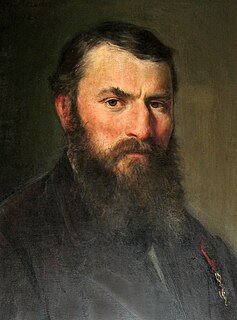 W
WFranz Moroder Lenèrt was an Austrian politician and poet. He was the first mayor of Ortisei in Val Gardena, a merchant, a scholar of Ladin history as well as a strong promoter of the Ladinian language.
 W
WFranzobel is the pseudonym of the Austrian writer (Franz) Stefan Griebl. He was born on 1 March 1967 in Vöcklabruck. In 1997 he won the Wolfgang Weyrauch Prize and in 1998, the Kassel Literary Prize, amongst numerous other literary awards. In 2017 he won the prestigious Nicolas Born Prize and was long-listed for the German Book Prize for his novel, Das Floß der Medusa. He now lives in Vienna.
 W
WFranz Karl Ginzkey was an Austro-Hungarian officer, poet and writer. His arguably most famous book Hatschi Bratschis Luftballon captivated generations of children.
 W
WDaniel Glattauer is an Austrian writer and former journalist. He was born in Vienna, where he still lives and works. A former regular columnist for Der Standard, a national daily newspaper, he is best known for his dialogic epistolary novel Love Virtually and its sequel Every Seventh Wave .
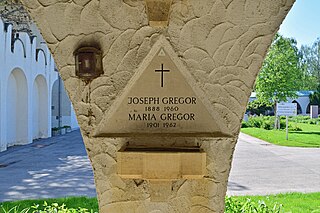 W
WJoseph Gregor was an Austrian writer, theatre historian and librettist. He served as director of the Austrian National Library.
 W
WWolf Haas is an Austrian writer. He is most widely known for his crime fiction novels featuring detective Simon Brenner, four of which were made into films. He has won several prizes for his works, including the German prize for crime fiction.
 W
WErich Hackl is an Austrian novelist and short story writer. His works have been translated into English, Spanish, French and Czech, though he is significantly better known in the German-speaking world. Many of his works, notably Sara und Simón, bear resemblance to Latin-American testimonial literature, and as such have been the focus of scholarly research by Latin Americanists.
 W
WPeter Handke is a Nobel laureate novelist, playwright, translator, poet, film director, and screenwriter from Austria. Handke was awarded the Nobel Prize in Literature in 2019.
 W
WJosef Haslinger is an Austrian writer.
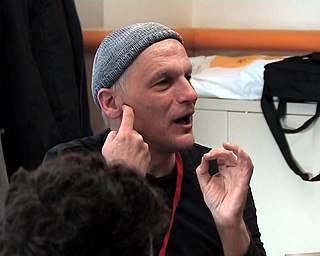 W
WChristian Ide Hintze ) was an Austrian poet and performance artist, who focused on the transition from literary to cross-media forms.
 W
WPaulus Hochgatterer is an Austrian writer and psychiatrist. He is the author of several novels and story collections. One of his novels called Die Süsse des Lebens won the EU Prize for Literature. It was translated into English as The Sweetness of Life by Jamie Bulloch.
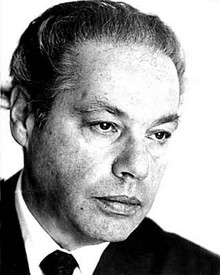 W
WFritz Hochwälder also known as Fritz Hochwaelder, was an Austrian playwright. Known for his spare prose and strong moralist themes, Hochwälder won several literary awards, including the Grand Austrian State Prize for Literature in 1966. Most of his plays were first performed at the Burgtheater in Vienna.
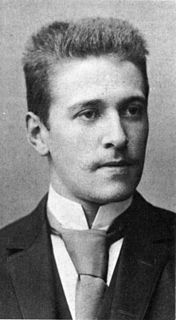 W
WHugo Laurenz August Hofmann von Hofmannsthal was an Austrian prodigy, a novelist, librettist, poet, dramatist, narrator, and essayist.
 W
WEdmund Josef von Horváth was a German-writing Austro-Hungarian-born playwright and novelist. He preferred the Hungarian version of his first name and published as Ödön von Horváth.
 W
WAlois Hotschnig is an Austrian writer, whose stories have been described as having "the weird, creepy, and ambiguous quality of disturbing dreams". He was winner of the Erich Fried Prize in 2008, and shortlisted for the Jan Michalski Prize for Literature in 2010.
 W
WEdmund Gustav Albrecht Husserl was a German philosopher who established the school of phenomenology. In his early work, he elaborated critiques of historicism and of psychologism in logic based on analyses of intentionality. In his mature work, he sought to develop a systematic foundational science based on the so-called phenomenological reduction. Arguing that transcendental consciousness sets the limits of all possible knowledge, Husserl redefined phenomenology as a transcendental-idealist philosophy. Husserl's thought profoundly influenced 20th-century philosophy, and he remains a notable figure in contemporary philosophy and beyond.
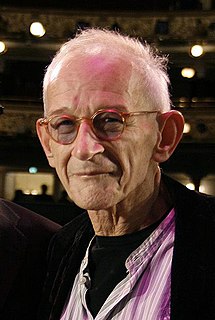 W
WGert Jonke was an Austrian poet, playwright and novelist.
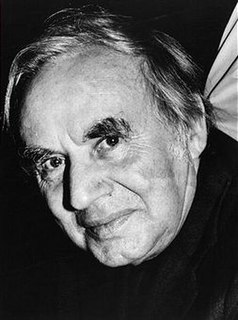 W
WRobert Jungk was an Austrian writer and journalist who wrote mostly on issues relating to nuclear weapons.
 W
WHans Kelsen was an Austrian jurist, legal philosopher and political philosopher. He was the author of the 1920 Austrian Constitution, which to a very large degree is still valid today. Due to the rise of totalitarianism in Austria, Kelsen left for Germany in 1930 but was forced to leave this university post after Hitler's seizure of power in 1933 because of his Jewish ancestry. That year he left for Geneva and later moved to the United States in 1940. In 1934, Roscoe Pound lauded Kelsen as "undoubtedly the leading jurist of the time." While in Vienna, Kelsen met Sigmund Freud and his circle, and wrote on the subject of social psychology and sociology.
 W
WPaul Kornfeld was a Prague-born German-language Jewish writer whose expressionist plays and scholarly treatises on the theory of drama earned him a specialized niche in influencing contemporary intellectual discourse.
 W
WSiegfried Leopold Kratochwil was an Austrian painter and poet. Born in Karlstift, Lower Austria he later moved to Vienna and became one of the best-known Austrian Naïve artists by the end of the 20th century.
 W
WKarl Kraus was an Austrian writer and journalist, known as a satirist, essayist, aphorist, playwright and poet. He directed his satire at the press, German culture, and German and Austrian politics. He was nominated for the Nobel Prize in Literature three times.
 W
WAlfred Leopold Isidor Kubin was an Austrian printmaker, illustrator, and occasional writer. Kubin is considered an important representative of Symbolism and Expressionism.
 W
WAndreas Latzko was an Austro-Hungarian pacifist of Jewish origin, a novelist and biographer.
 W
WAlexander Lernet-Holenia was an Austrian poet, novelist, dramaturgist and writer of screenplays and historical studies who produced a heterogeneous literary opus that included poetry, psychological novels describing the intrusion of otherworldly or unreal experiences into reality, and recreational films.
 W
WFritz Löhner-Beda, born Bedřich Löwy, was an Austrian librettist, lyricist and writer. Once nearly forgotten, many of his songs and tunes remain popular today. He was murdered in Auschwitz III Monowitz concentration camp.
 W
WArmin Medosch was an Austrian artist, curator, theorist and critic working in the fields of net.art, new media art and DiY networking.
 W
WMax Mell (1882–1971) was an Austrian writer. He wrote plays, novels and screenplays. He was born in Maribor, then part of the Austrian Empire but now in Slovenia. In 1914 he won the Bauernfeld Prize, and in 1929 he was awarded the Franz Grillparzer Prize. Culturally conversative, in 1951 he tried to counter what he regarded as Nazi distortions of the epic Nibelungenlied with a more faithful reading of the original text. In 1959 he was given the Austrian Decoration for Science and Art.
 W
WRobert Menasse is an Austrian writer.
 W
WGustav Meyrink was the pseudonym of Gustav Meyer, an Austrian author, novelist, dramatist, translator, and banker, most famous for his novel The Golem. He has been described as the "most respected German language writer in the field of supernatural fiction".
 W
WLudwig Heinrich Edler von Mises was an Austrian School economist, historian, logician and sociologist. Mises wrote and lectured extensively on the societal contributions of classical liberalism. He is best known for his work on praxeology, a study of human choice and action.
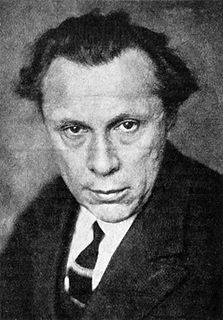 W
WWalter Ritter/Reichsritter von Molo (14 June 1880, Šternberk, Moravia, Austria-Hungary– 27 October 1958, Hechendorf, was an Austrian writer in the German language.
 W
WRobert Musil was an Austrian philosophical writer. His unfinished novel, The Man Without Qualities, is generally considered to be one of the most important and influential modernist novels.
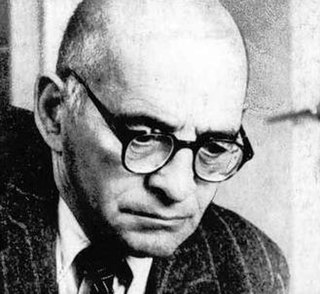 W
WLeopold Perutz was an Austrian novelist and mathematician. He was born in Prague and was thus a citizen of the Austro-Hungarian Empire. He lived in Vienna until the Nazi Anschluss in 1938, when he emigrated to Palestine.
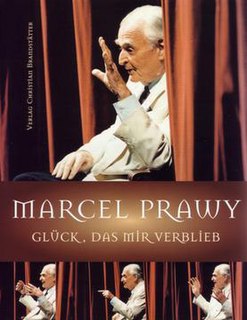 W
WMarcel Prawy was an Austrian dramaturg, opera connoisseur and opera critic. He was born into a Jewish Austro-Hungarian noble family and studied law, but his life belonged to the opera. He became secretary of the tenor Jan Kiepura and, together, emigrated to the United States when persecution of the Austrian Jews became unbearable in the late 1930s.
 W
WDoron Rabinovici is an Israeli-Austrian writer, historian and essayist. He was born in Tel Aviv in 1961 and moved to Vienna in 1964.
 W
WPeter Rosegger was an Austrian writer and poet from Krieglach in the province of Styria. He was a son of a mountain farmer and grew up in the woodlands and mountains of Alpl. Rosegger went on to become a most prolific poet and author as well as an insightful teacher and visionary.
 W
WFelix Salten was an Austro-Hungarian author and literary critic in Vienna. His most famous work is Bambi, a Life in the Woods (1923).
 W
WKarl Schönherr was an Austrian writer of Austrian Heimat themes.
 W
WFranz Schuh is an Austrian novelist, literary critic and, above all, essayist in the tradition of Karl Kraus and Alfred Polgar. Schuh was born, and lives, in Vienna, where, just like his predecessors, he prefers to write in one of the traditional coffeehouses.
 W
WKarl Hans Strobl was an Austrian author and editor. Strobl is best known for his horror and fantasy writings. Strobl was a member of the Nazi Party.
 W
WGeorg Trakl was an Austrian poet and the brother of the pianist Grete Trakl. He is considered one of the most important Austrian Expressionists. He is perhaps best known for his poem "Grodek", which he wrote shortly before he died of a cocaine overdose.
 W
WArthur Trebitsch (1880–1927) was an Austrian writer and racial theorist, known for being an antisemite of Jewish origin. He offered his services to help the fledgling Nazis to write their antisemitic literature, and was an influence on the early development of the Austrian branch of the Nazi party.
 W
WSiegfried Trebitsch (1868–1956) was an Austrian playwright, translator, novelist and poet. Though prolific as a writer in various genres, he was best known for his German translations, especially of the works of the Irish playwright George Bernard Shaw, with whom he kept up a long and detailed correspondence. He is also known for translations of French writers, especially Georges Courteline.
 W
WJohann "Jack" Unterweger was an Austrian serial killer who committed murder in several countries. Initially convicted in 1974 of a single murder, Unterweger began to write extensively while in prison. His work gained the attention of the Austrian literary elite, who took it as evidence that he had been rehabilitated. After significant lobbying, Unterweger was released on parole in 1990.
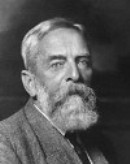 W
WFriedrich Freiherr von Wieser was an early economist of the Austrian School of economics. Born in Vienna, the son of Privy Councillor Leopold von Wieser, a high official in the war ministry, he first trained in sociology and law. In 1872, the year he took his degree, he encountered Austrian-school founder Carl Menger's Grundsätze and switched his interest to economic theory. Wieser held posts at the universities of Vienna and Prague until succeeding Menger in Vienna in 1903, where along with his brother-in-law Eugen von Böhm-Bawerk he shaped the next generation of Austrian economists including Ludwig von Mises, Friedrich Hayek and Joseph Schumpeter in the late 1890s and early 20th century. He was the Austrian Minister of Commerce from August 30, 1917 to November 11, 1918.
 W
WAnton Wildgans was an Austrian poet and playwright. He was nominated for the Nobel Prize in Literature four times.
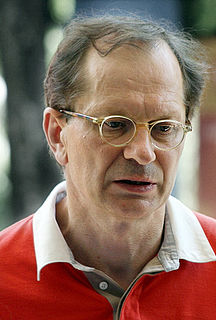 W
WJosef Winkler is an Austrian writer.